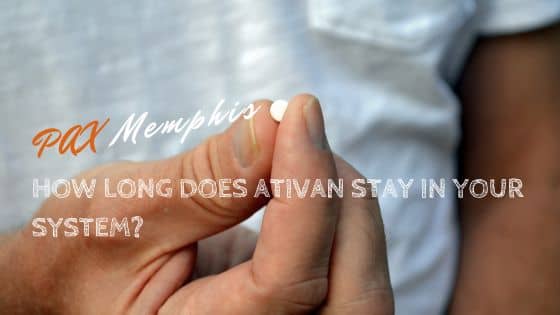Ativan is the brand name for a benzodiazepine medication called lorazepam. It is often prescribed to treat insomnia or situational anxiety and panic attacks. Ativan works by slowing down parts of your brain to induce calmness.[1]
While Ativan treats anxiety and insomnia effectively, it is only intended for short-term use because lorazepam is known to cause dependency and addiction. If you use Ativan long-term or in larger doses than recommended by your doctor, you may develop a substance use disorder.
If you or a loved one are addicted to Ativan, knowing how long it stays in your system can help you seek professional help before you develop withdrawal symptoms.
Factors that Affect How Long Ativan Stays in Your System
There are several personal factors that can affect how long Ativan stays in your body. For example, your metabolism can cause Ativan to stay in your system for a longer or shorter period than normal.
Other factors include:
- Age
- Weight
- Overall health
- Liver and kidney functioning
- Other medications you take
- How long you have been taking Ativan
- The dose of Ativan you generally take
All of these factors play a role in how long it takes your body to eliminate the substance. Someone who frequently takes large doses of Ativan might have more of the drug’s metabolites built up in their system, causing them to test positive for the substance longer than other people.
How Long Does Ativan Remain in Your System?
Understanding how long Ativan remains in your system requires you to take a look at the half-life of the drug. A half-life is how long it takes your body to eliminate half of a single dose of a substance. Typically, it takes about four to five half-lives for a drug to be completely eliminated from your system.
Ativan’s half-life is about 12 hours, so it could take up to 60 hours for the drug to be removed from your body.[2]
However, drug tests look for metabolites that Ativan leaves behind. Sometimes, metabolites can stay in your system longer than the drug itself. Each type of drug test can detect Ativan in your body for various amounts of time.
Urine
Urine drug tests are the most commonly used type of drug test. They are cheap, non-invasive, and generally reliable. These tests can detect Ativan in your urine for up to 6 days after your last dose.
It is important to note that a false positive can occur when taking a urine test if you have taken the antidepressant drug, sertraline, or an anti-inflammatory medication called oxaprozin.[3]
Saliva
Saliva tests are rarely used to screen for Ativan because they have a very short window of detection. Ativan can be detected in your saliva for up to 8 hours after you take it.
Blood
Blood tests are less commonly used when compared to urine tests because they are invasive. However, they are pretty reliable when it comes to testing for Ativan. Blood tests can detect Ativan in your system starting 6 hours after you consume it and for up to 3 days after your last dose.
Hair
Hair tests provide the longest window of detection time, however, these tests are not used often because the cost of sending them to the lab can be expensive. Hair follicle drug tests can detect Ativan in your system for up to 30 days after your last dose.
Find Help for Ativan Abuse and Addiction
Ativan withdrawal symptoms can occur as early as 12 hours after your last dose. Ativan withdrawal symptoms can be incredibly dangerous, sometimes causing seizures without medical attention. If you are addicted to Ativan, you should be within the safety of a medical detox center before your withdrawal symptoms become severe.
Finding an addiction treatment program that offers medical detox for Ativan can be tricky if you have never been to rehab before. Thankfully, PAX Memphis is here to help you find the best addiction treatment program for your needs.
To learn more about how we can assist you in your search for Ativan addiction treatment, contact PAX Memphis today.
References:
- Medline Plus: Lorazepam Retrieved May 2023 From https://medlineplus.gov/druginfo/meds/a682053.html
- Food and Drug Administration: Ativan (Lorazepam), Retrieved May 2023 From https://www.accessdata.fda.gov/drugsatfda_docs/label/2007/017794s034s035lbl.pdf
- National Institutes of Health (NIH): False-Positive Urine Screening for Benzodiazepines, Retrieved May 2023 From https://www.ncbi.nlm.nih.gov/pmc/articles/PMC2728940/
Medically Reviewed: September 25, 2019

All of the information on this page has been reviewed and verified by a certified addiction professional.










